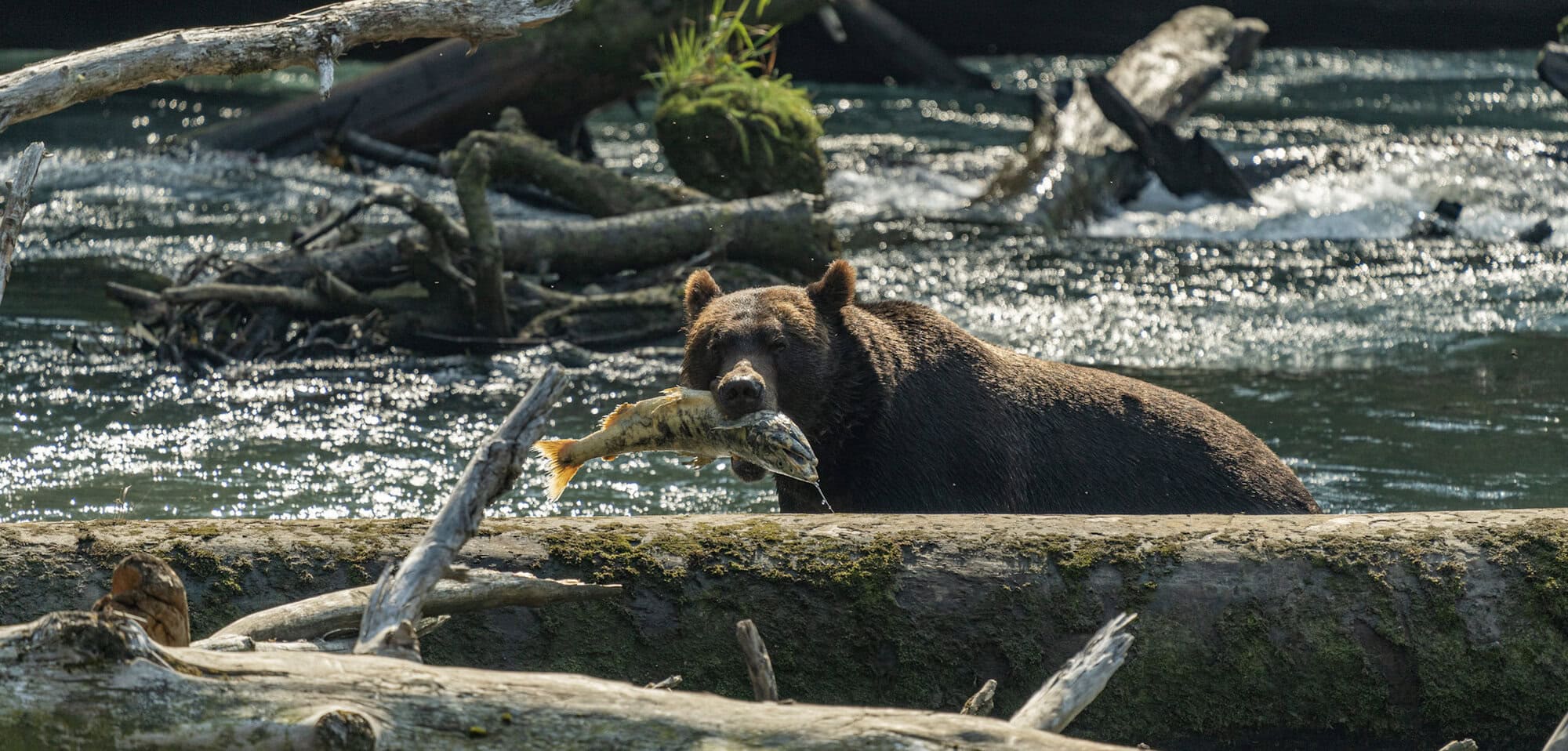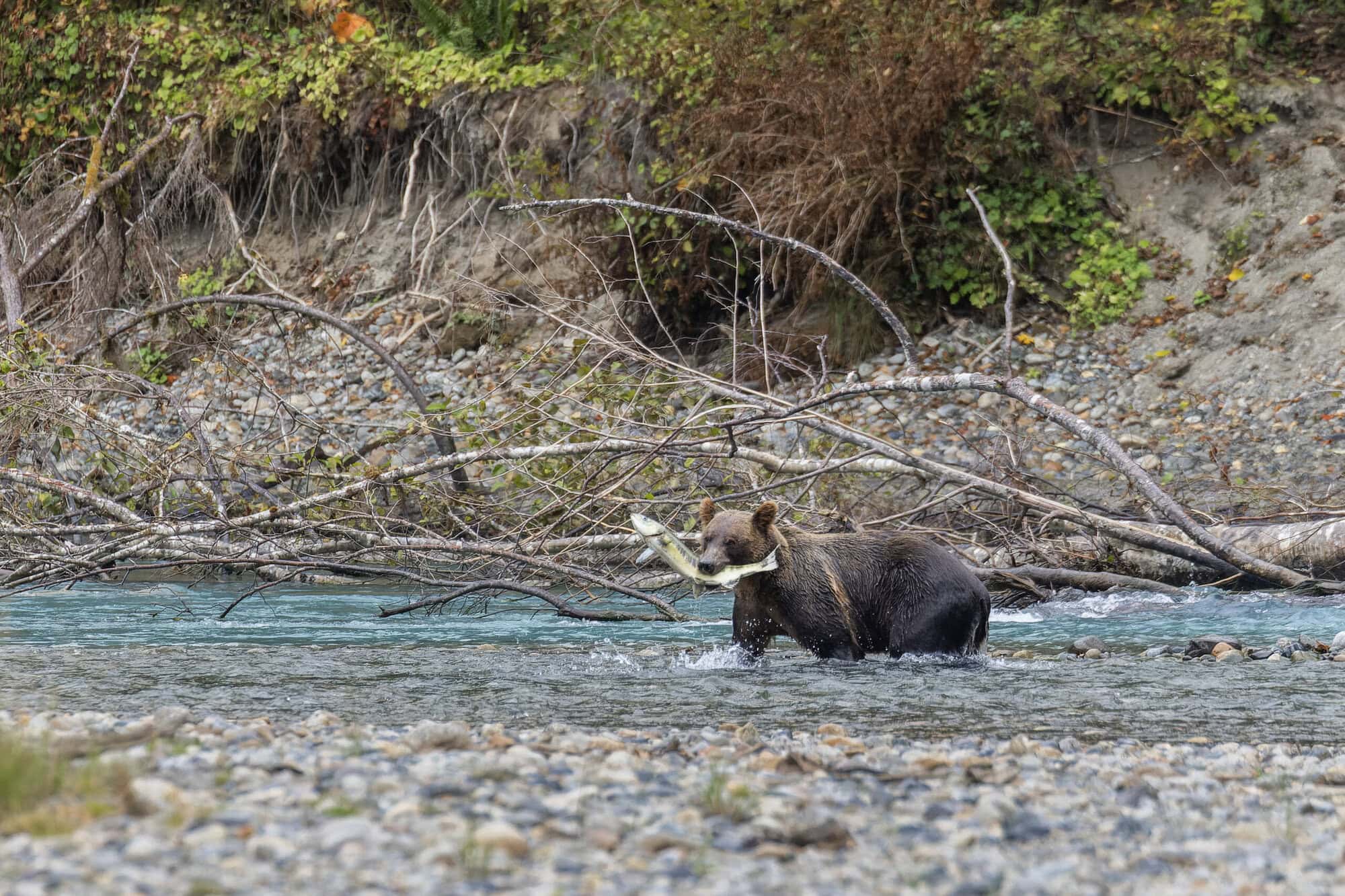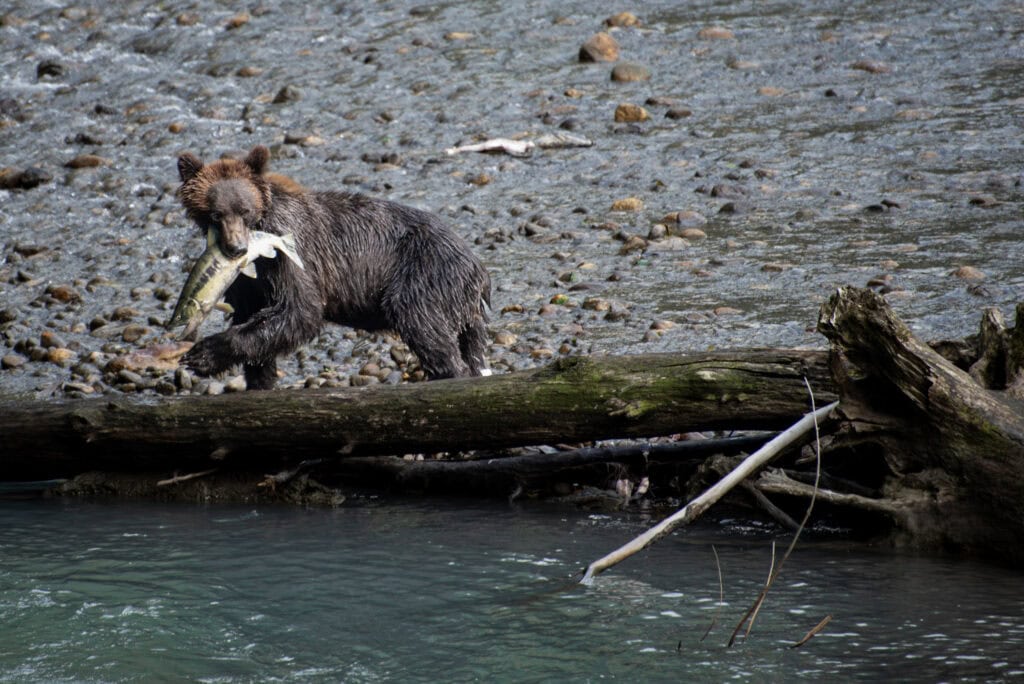The coastal ecosystem of British Columbia (B.C.) is a complex web of ecological dependencies between grizzly bears, Pacific salmon, and a multitude of other species. At the heart of this complex web lies the Pacific salmon, often referred to as a keystone species due to their influence on both terrestrial and aquatic environments.
Pacific Salmon: Transferring Nutrients between Sea to the Rain Forests
Pacific salmon, including five distinct species in B.C., play a crucial role far beyond their status as a fishery resource. Their lifecycle, spanning from freshwater streams to the ocean and back again, makes them an essential part of B.C.'s coastal ecosystem.
Salmon are active contributors to the ecosystem's health. During their upstream migration, they transport nutrients from the ocean into freshwater ecosystems. Upon reaching their spawning streams, their bodies start to decompose and their nutrient-rich carcasses improve the productivity of surrounding flora and fauna. This cycle of nutrient transfer supports over 130 species, ranging from microscopic algae to large coniferous trees.

Grizzly Bears: Beneficiaries of Salmon Streams
Among the most iconic beneficiaries of the salmon's abundance are grizzly bears. They depend on salmon as a primary food source, especially during the annual spawning seasons in the fall. The nutrient intake from salmon not only sustains the bears themselves but also nourishes the ecosystem. Grizzly bears carry salmon on land, where the remains of the fish release nutrients into the soil, benefitting insects and plants.
Cultural and Economic Significance
Salmon's significance extends far beyond ecological considerations. They hold crucial cultural importance for Indigenous communities in B.C. relating to traditional practices, cultural heritage, and spiritual beliefs. Economically, salmon support thriving commercial and recreational fisheries, as well as wildlife tourism businesses, contributing to local economies throughout the region.

Conservation Needs: Protecting an Important Resource
The decline of salmon populations leads to negative ecological impacts, potentially endangering the stability and resilience of entire coastal ecosystems. Safeguarding salmon requires actions to preserve critical habitats, implement sustainable fisheries management practices, and address the challenges created by climate change.
Joining an ethical whale or bear watching tour with Campbell River Whale Watching not only provides a unique wildlife experience but also supports conservation efforts in B.C. Each guest contributes to the preservation of one square meter of old-growth forests and habitats through the company's forest protection program. Additionally, a sustainability fee included in the tour price supports local conservation organizations such as the North Island Marine Mammal Stewardship Association and the Commercial Bear Viewing Association, dedicated to protecting marine mammals and grizzly bears in the region.
Written by Maddie Lemke
Sources:
Pacific Wild (n.d.). Salmon: a foundational species. https://pacificwild.org/salmon-a-keystone-species/
Pacific Salmon Foundation (n.d.). Restoration. https://psf.ca/work/watershed/restoration/



